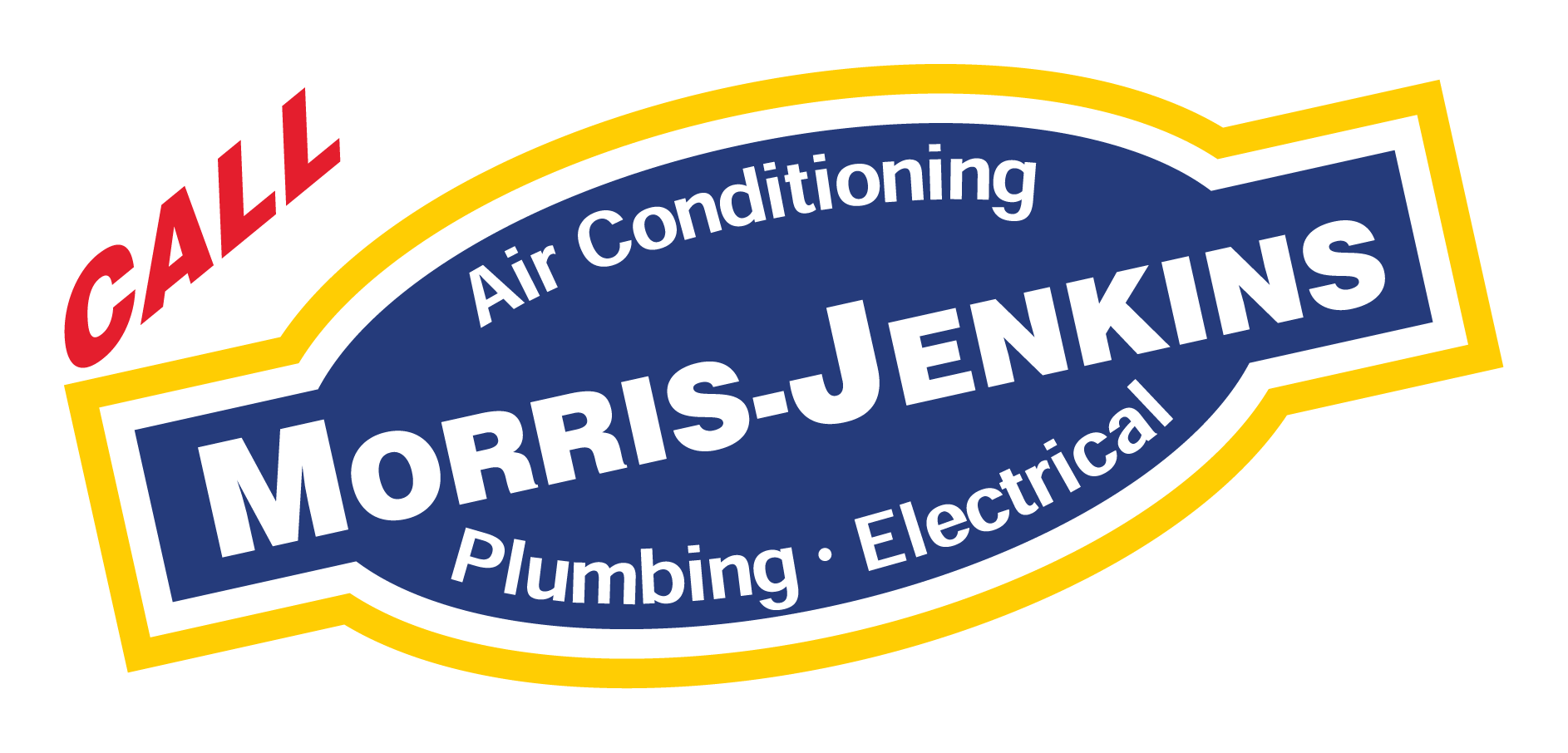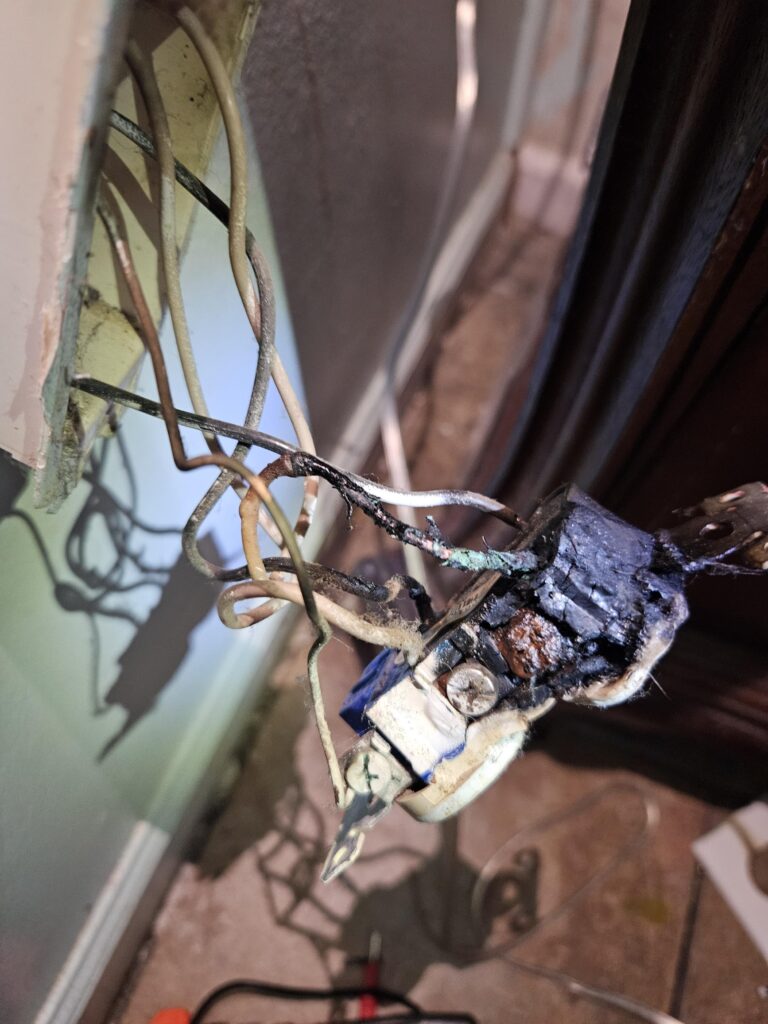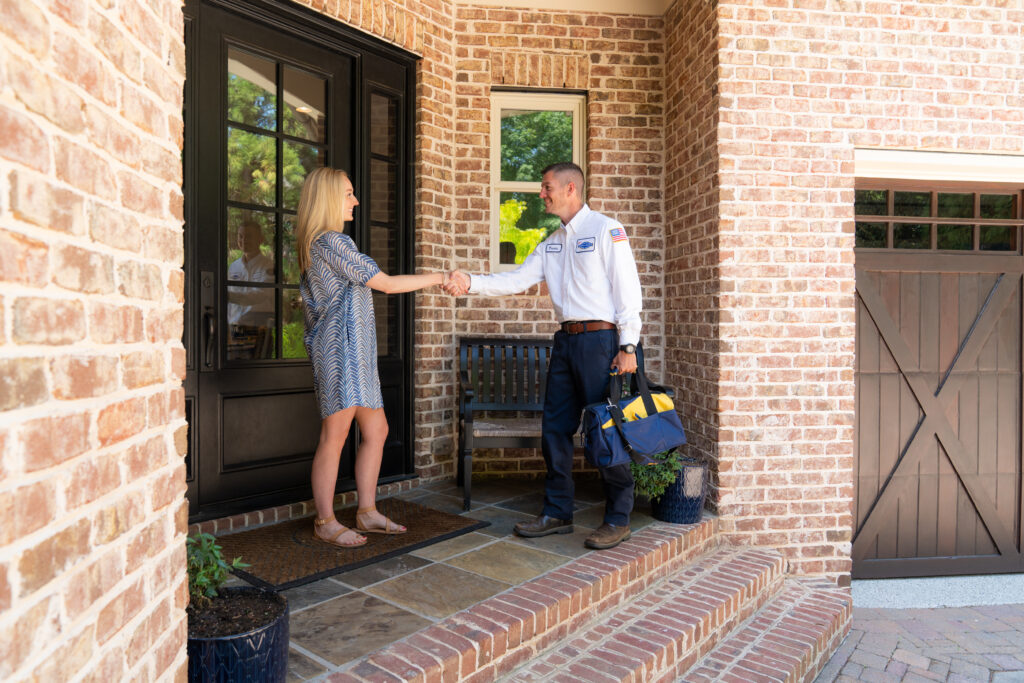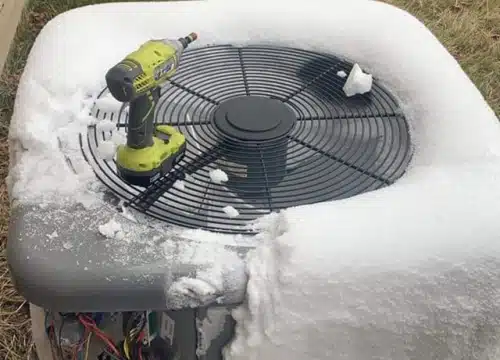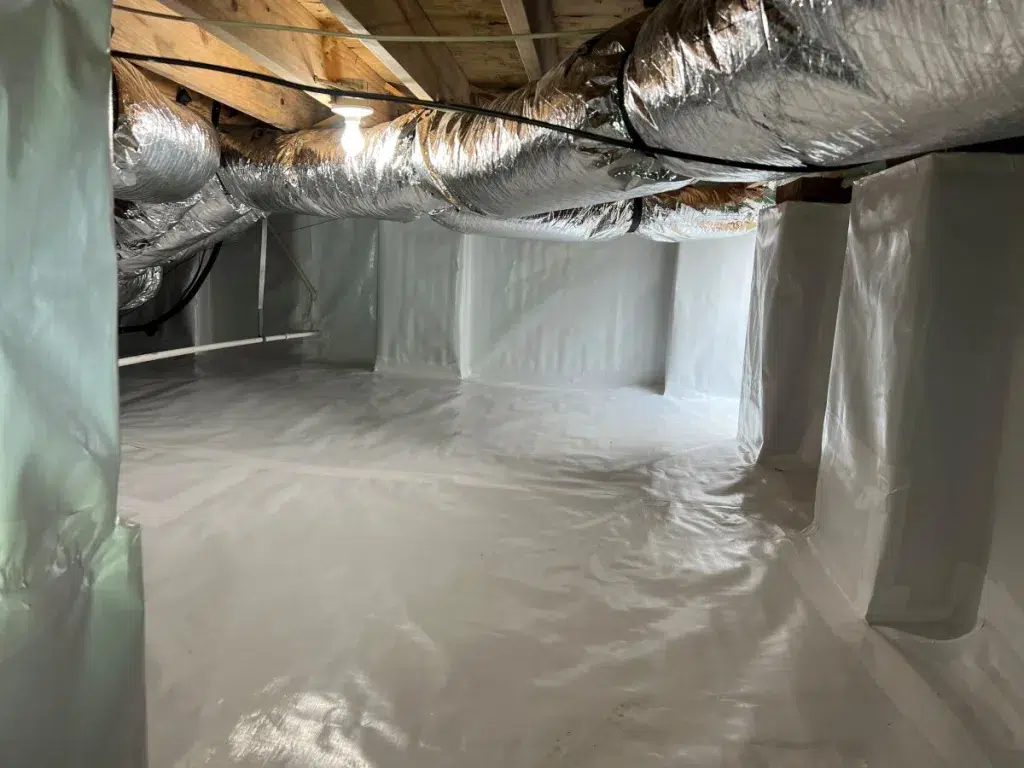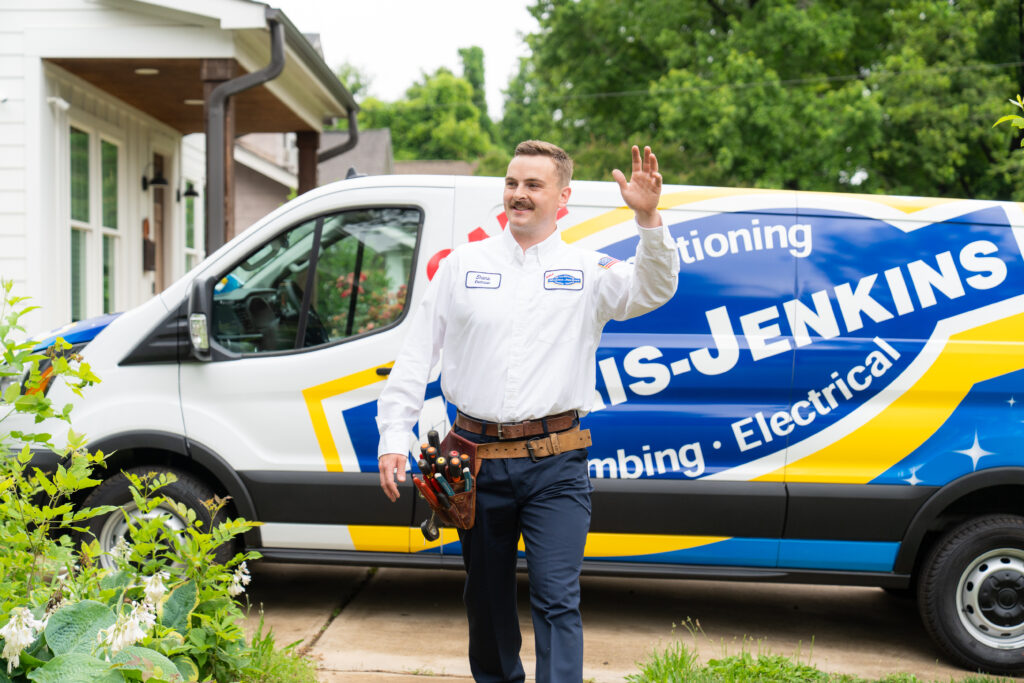Your septic system isn’t something you think about often, unless it starts having problems. We get asked all kinds of things about how to fix, move, or take care of septic systems. There are no dumb questions! To make understanding your septic system a little easier, we put together nine of the most common septic system questions we get asked.

1. “Is It Common to Have Septic Issues During the Holidays?”
Your septic system is specific to your home and your family! When your home’s septic system was built, the health department came out and did some calculations. One of the things they look at is how many beds are in your home. This gives them a good idea of how many people live in the home, which helps them plan your septic system to accommodate the right number of people. When you have guests over for the holidays, you have more people using your plumbing than your septic system was built for.
After a while of this, your septic tank might get backed up. If you like hosting, it’s a good idea to reach out to us to provide you with HOTROD™ 9-1-1. If you keep this emergency septic treatment on hand, you’ll be ready to quickly tackle any septic backups you have while hosting!
2. “Should My Water Filter or Softener Discharge into My Septic Tank?”
The short answer: No!
Any additional waste—including discharge from your water softener or water filter—can disrupt the function of your septic system. Your water filter and/or water softener would be adding extra waste that wasn’t accounted for when your local health department did their calculations for your septic system.
Not only that, but your septic tank is an ecosystem with a delicate balance. The contents of that discharge won’t just throw off the levels of waste in your septic tank, but it could also damage the ecosystem that’s trying to keep things running smoothly!
If you don’t already have a water filter or softener installed but were considering getting one, let us know! Our plumbers are also septic system experts and know the best way to set up your water filter or water softener to keep it from impacting your septic system.
3. “Is There a Filter in My Septic Tank That I Should Clean?”
Septic tanks are all required to have an effluent filter, but there are a lot of times we come across septic tanks that don’t. If you aren’t sure if your septic tank has an effluent filter, let us know! We can send one of our septic experts out to your home to check. If it turns out your tank doesn’t have this filter, we can give you some options to get it installed. If you do have one, we can clean it for you!
4. “Can You Install a Garbage Disposal if You Have a Septic System?”
The answer here can vary from property to property, so be sure to talk to a professional before installing one. In many cases, you can have a garbage disposal with a septic system, but you’ll need to be extra careful about how you use it. Too much food waste can overload your tank and slow down the natural breakdown process.
Again, though, we can’t speak to your specific situation without taking a look at your setup first. Every septic system is a little different, and things like tank size, age, and soil type all play a part in how well it can handle extra waste.
5. “How Much Liquid Should Be in My Septic Tank?”
Notice that your septic system seems full after a septic system inspection? That’s actually normal! Your septic tank should always look full. The important thing is that the pipe coming from your home is NOT submerged.
As long as that pipe is visible above the liquid, your liquid levels are fine. If it is submerged, go ahead and give us a call so we can figure out what’s causing your septic issues before you experience bigger problems! We wanna help you stay away from a failing septic system, so pick up the phone and give us a call with any questions!
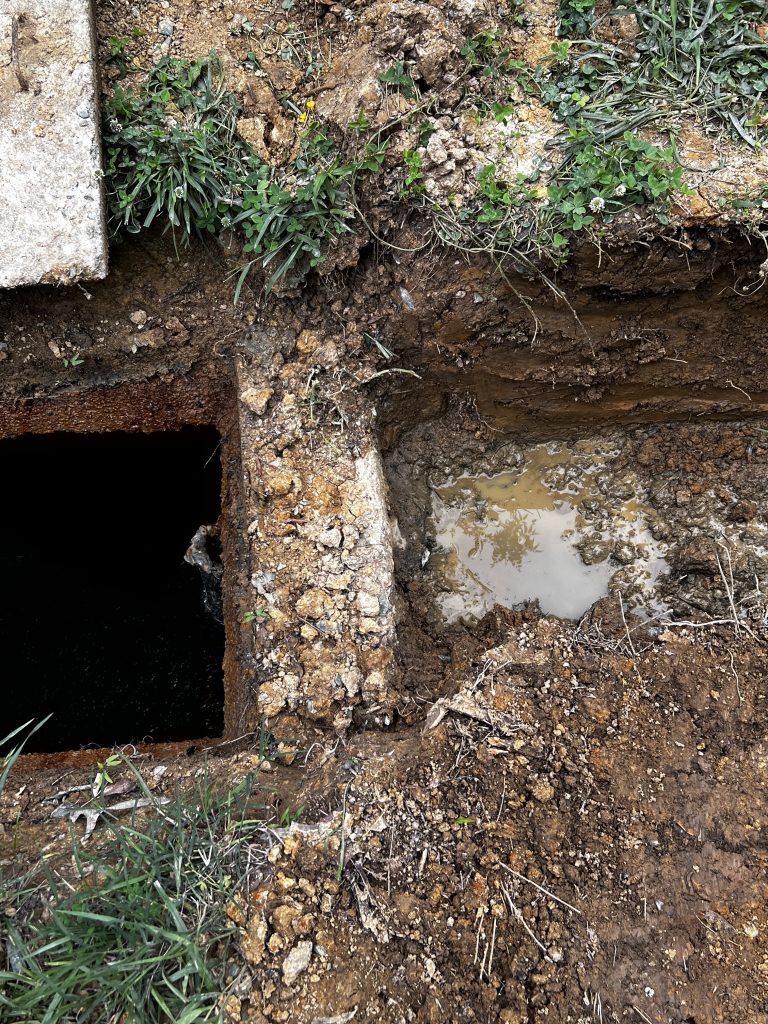
6. “Is a Septic System Safe for Kids?”
As long as your septic system is installed correctly, it’s safe for kids. However, this doesn’t mean it’s a great idea to let your child play near the septic tank. Your septic tank isn’t that far underground, and there are risks of injury if your kid plays too close to the tank.
We can install a protective element to your septic tank that’ll at least protect your kid from falling into the septic tank (it’s called a kid catcher!), but we still recommend you teach your child to keep a safe distance from the septic tank.
7. “Why Can’t I Build a Deck Over My Septic System?”
Any kind of construction work near or above your septic system risks damaging the tank or pipes. Attempting to build a deck over your septic system can crush parts of the system or block access for maintenance and repairs.
Not only are you risking your septic system during the construction of your deck, but the deck itself stops the leach field from getting the airflow it needs to work right. Without the right oxygen flow, liquids from your septic system won’t be able to evaporate. And if your septic system acts up and needs help, it’s gonna be hard to access with a deck above it!
8. “Can I Move or Change the Layout of My Leach Field?”
Before you can move or change your leach field, you have to call the health department and have them assess your property again. A lot goes into determining the location and layout of a leach field in order to keep things safe and efficient. Once they visit your property and run their calculations, they’ll let you know what other options you have for your leach field. If they let you know you’re free to move it, then give us a call! We’ll take care of the rest from there.
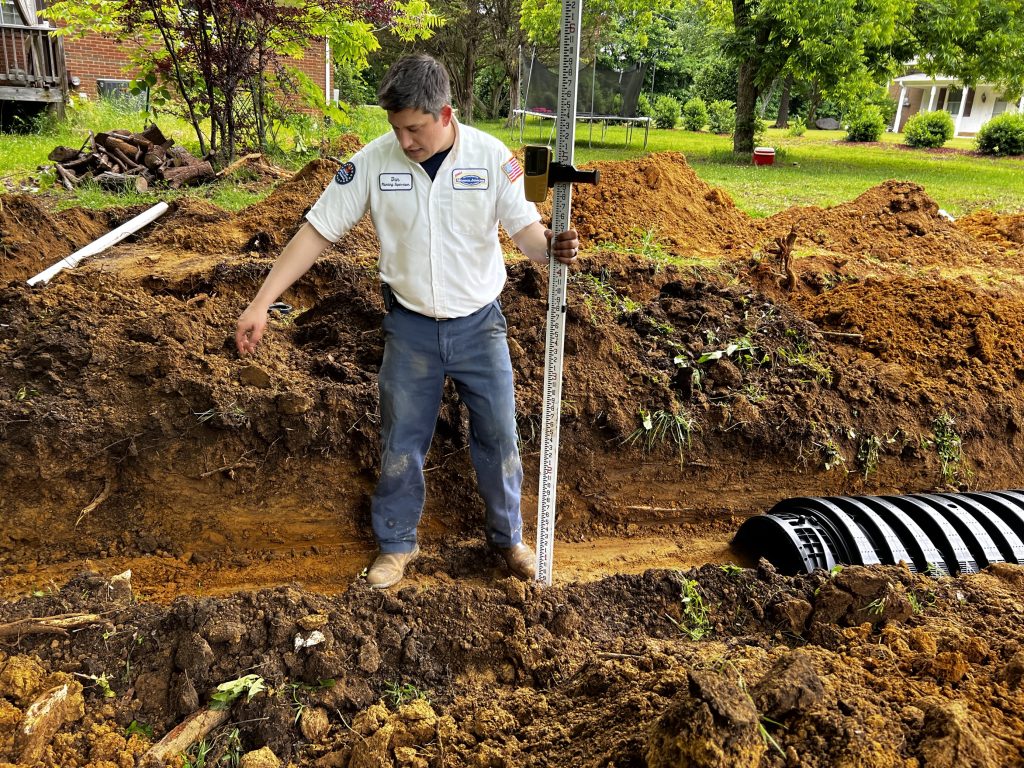
9. “Why Do I Need to Treat My Septic Tank?”
If you take care of your septic system, you may not have to pump it for years! There are all kinds of septic maintenance products out there, including ones in your hardware store. At Morris-Jenkins, we recommend HOTROD™ products. You can’t find them at the hardware store, but we can get them to you easily! They’re far more effective than anything else you’ll find out there. While most septic tank treatments have a few helpful ingredients, HOTROD™ PRO has 22 powerful ingredients to make sure your septic system is healthy and running right!
Not sure why your septic system needs maintenance in the first place? Let’s break it down a bit! Your septic tank has two sections—one for solids, one for liquids. Over time, the solids break down into liquids, which move into the liquid side. All that liquid passes through to your leach field to evaporate. Sounds simple enough, right? The catch is—sometimes solids will stop breaking down.
This is when you need to have your septic tank pumped because your home is having backups. Your septic tank is an ecosystem! It relies on bacteria to break down solids. If the bacteria balance is out of whack, things won’t work like they should. Septic system maintenance treatments like HOTROD™ PRO add more beneficial bacteria to your septic system to make sure solids are breaking down and exiting your system the right way.
Now That You Know Some Common Septic System Questions, What’s Next?
Now that you’ve got the basics down, it’s a good idea to keep your septic system on a regular maintenance schedule. And if you ever have questions or notice something that doesn’t seem right, the pros at Morris-Jenkins are always here to help.
We’re here to make sure your septic system is always working at its best so you’ve got one less thing to worry about!
Talk to Morris-Jenkins About Your Septic System
A healthy septic system goes a long way toward keeping your home running smoothly and your plumbing stress-free. When it’s working right, you barely even think about it—but when something goes wrong, you’ll definitely notice! Whether you’re dealing with a complete septic system failure or you just wanna learn more about how septic systems work, reach out to us today!
We usually only think of septic systems to flush human waste and toilet paper, but they’re so much more than that! Your septic system handles water from your sinks, showers, laundry, and more, so making sure it always functions right will help your whole home run better.
If you still have questions about how to maintain your septic system, what might be wrong with your septic system, or how to convert your home from a septic system, give us a call or message us online. We’ve got septic tank and leach field experts ready to help with septic system repairs, installations, conversions, and maintenance!
